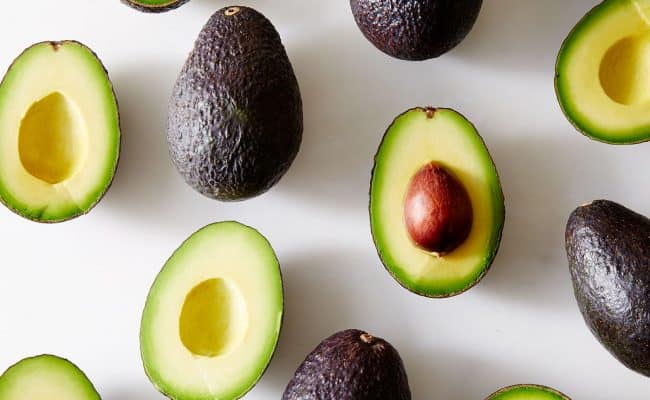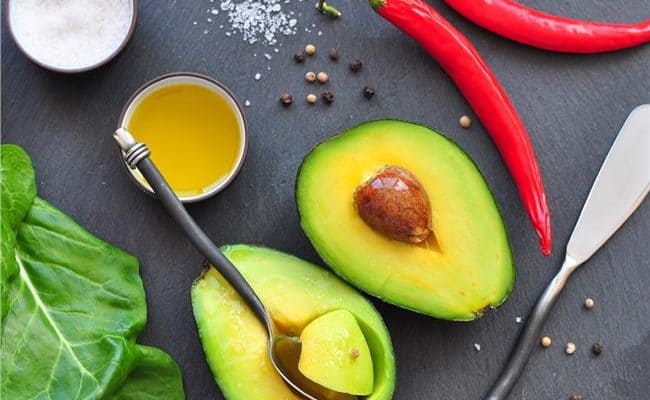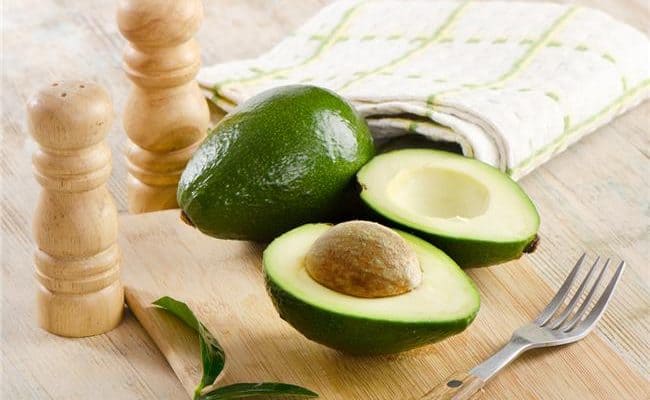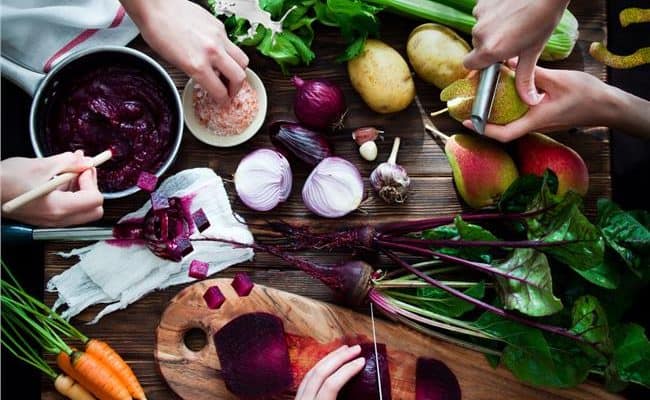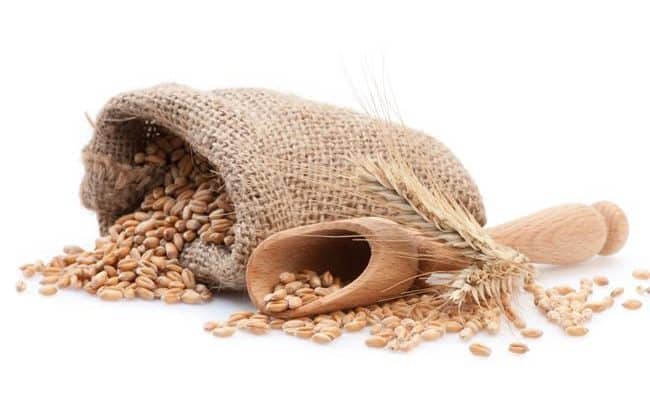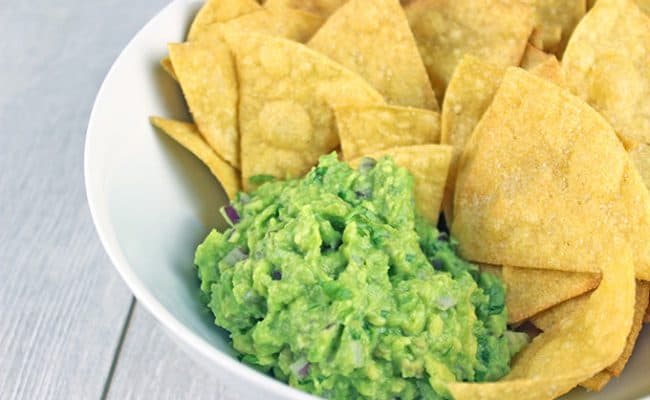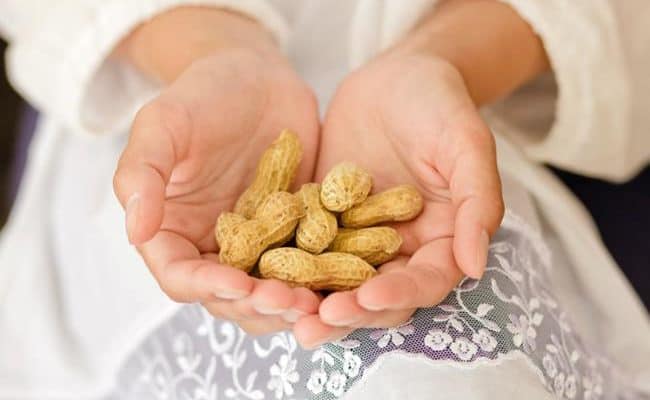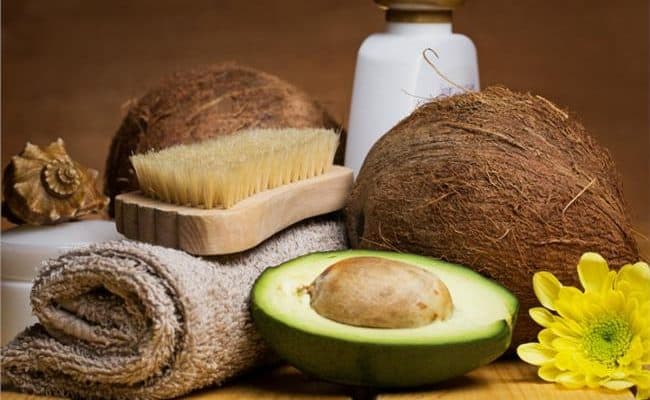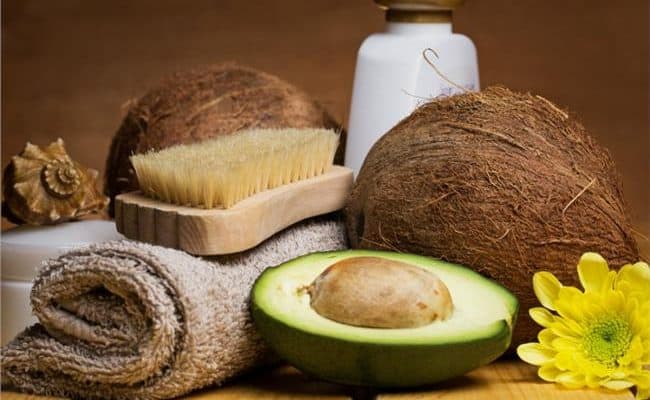
Avocados are a paradox: they are technically a fruit, but they taste more like a vegetable. They are low in sugar and high in fat which is rare for fruits. Though they are high in fat, they are considered heart healthy and do not increase risk for weight gain.
Avocados originate from Mexico, but now people around the world enjoy avocados as a regular part of their diet. In fact, avocados are increasingly growing in demand.
Avocado consumption has increased 443% over the past 2 decades in the US according to data from Michigan State University (1).
Indeed, the increase of avocado consumption is not just another hyped food trend, but there are many researched based health benefits avocados can provide.
Topics covered in this avocado guide:
Health benefits of Avocado
Avocados are very nutritious and can even be considered a superfood (although this term has no exact definition).
A 2013 study found avocado consumption is associated with improved diet quality and higher intakes of some vitamins and minerals.
Therefore, just eating avocados as part of your diet can help meet your intake for almost 20 vitamins and minerals (2, 3).
Avocados are loaded with essential Vitamins and Minerals
A third of a California avocado, 50 grams, provides the following:
6% DV Potassium. A diet rich in fruits and vegetables can help you reach the daily 4,700 mg goal of potassium.
Most Americans don’t get enough potassium and get too much sodium which can increase risk of high blood pressure.
Therefore, eating more avocados, other fruits and vegetables in place of processed snacks is one way to get more potassium and less sodium.
10% DV Vitamin K. Vitamin K is necessary for bone building, blood clotting and may also play a role in maintaining healthy blood pressure levels.
If you are taking medication for blood clotting, speak with your healthcare team before adding vitamin K sources in your diet.
10% DV Folate. Folate is needed to make DNA, RNA and metabolize proteins. Some studies have shown an inverse relationship between diets high in folate and cancer risk for several cancers (4).
15% DV Pantothenic acid. Pantothenic acid is needed for healthy skin and to break down carbs, fats and protein for energy.
10% DV copper. Copper is a trace mineral used for making red blood cells, nerve function, helps make collagen and absorb iron.
Low levels of copper have been associated with high cholesterol and blood pressure.
A 50 gram serving of avocado also provides less than 10% DV for: iron, vitamin C, vitamin E, B vitamins, phosphorus, magnesium, zinc and manganese.
Antioxidants in Avocados
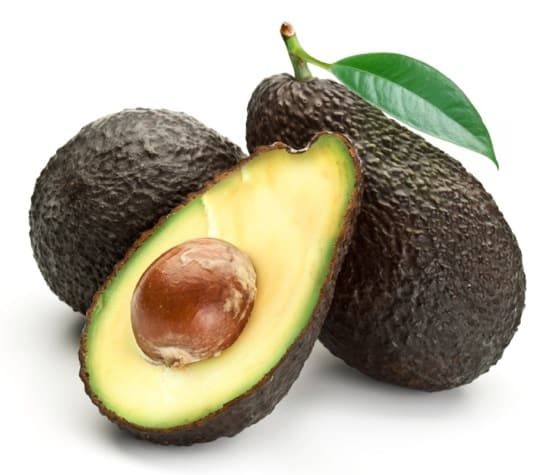
Besides providing a good source for many vitamins and minerals, avocados are also a source of antioxidants.
Antioxidants, mainly from natural plant foods, can protect body cells from damage. This may be one reason a diet high in fruits and vegetables may help lower risk from chronic diseases.
Avocados provide vitamin antioxidants vitamin C and E, and they also provide carotenoids lycopene and zeaxanthin.
Both carotenoids are important for eye health and may help protect skin from damage.
The California Avocado Commission suggests avocados are one of the highest fruit and vegetable sources of lutein and zeaxanthin.
Tip: Add avocado to salsa and salads for increased antioxidants
Most fruits and vegetables are low in fat; therefore, absorption of some fat-soluble antioxidants may be limited without a fat source.
Because avocados are high in fat, they increase fat soluble antioxidants and nutrients.
A 2005 study (5) found adding avocado to salsa or salad significantly increased the absorption of carotenoids.
Therefore, adding avocados to salsa, salad or other primarily veg/fruit dishes can significantly increase absorption of carotenoid antioxidants.
Fat in Avocados
A 50 gram serving of avocado provides about 8 grams (10% DV) fat.
While this may seem high for a fruit or vegetable, more than ¾ of the fat in avocados comes from heart healthy unsaturated fats.
This is why avocados can be considered heart healthy even though they are relatively high in fat.
When eaten in moderation and in place of saturated fats, unsaturated fats can be part of a heart healthy diet.
Therefore, substituting avocados in place of other fat sources like butter, cheese, mayo, etc. can be considered a heart healthy swap.
Fiber in avocado
Like all other fruits and vegetables, avocados are a source of fiber. A 50 gram serving of avocado provides about 3 grams (11% DV) fiber.
Adding avocados and other fruits and vegetables increases your fiber intake in addition to vitamin, mineral and antioxidant intake.
SUMMARY
Avocados are a nutrient dense food. They provide a source of heart healthy fats, fiber, antioxidants, vitamins and minerals.
Avocado Calories
Avocados are relatively higher in calories compared to most other fruits and vegetables because they are higher in fat.
Eating a lot of avocados can contribute a significant source of calories and fat, but eating avocados in moderation as part of a healthy diet is recommended.
Portion size of avocado can be important for that monitoring calorie intake. Calorie content can vary in avocados based on size.
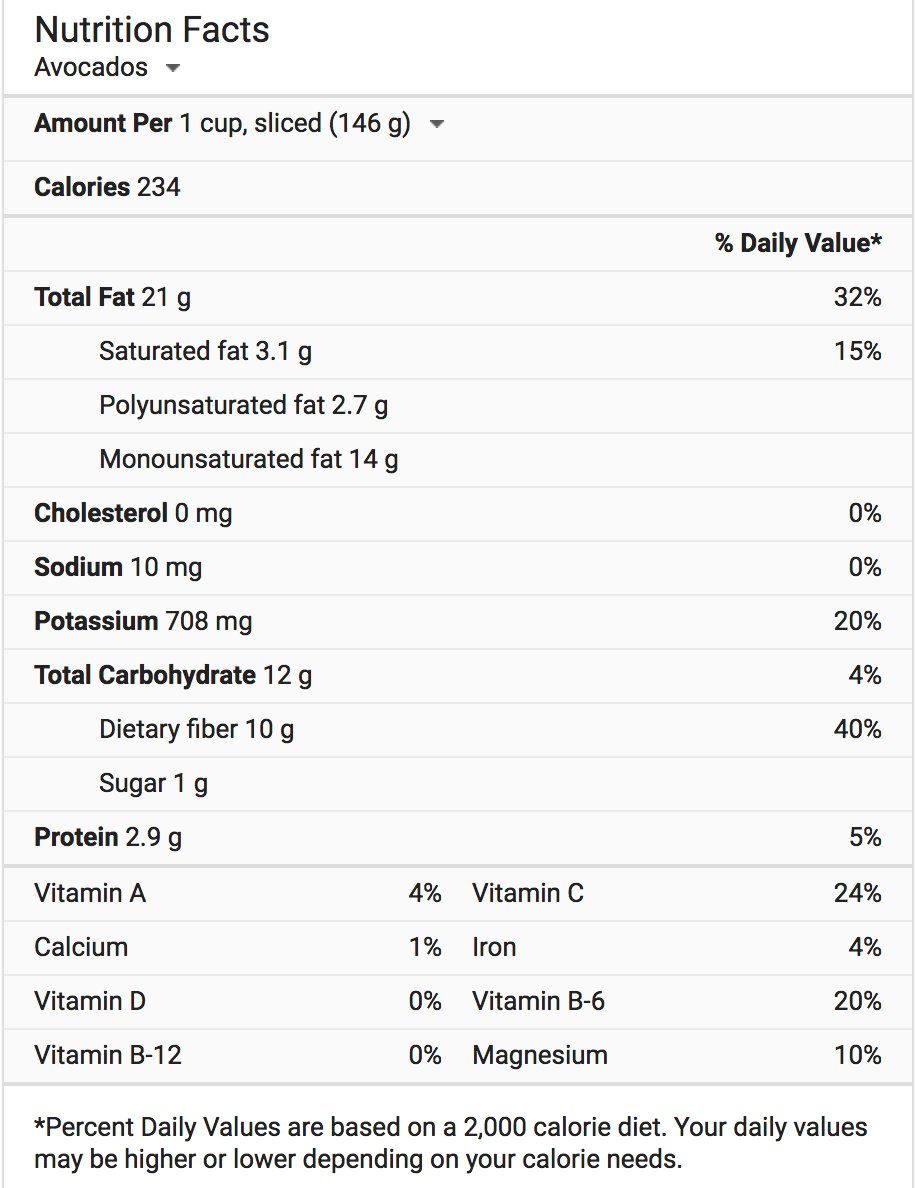
Avocados come in different shapes and varieties, but the vast majority of avocados are the Hass variety.
Calories in a medium avocado
Eating a whole California or Florida Hass avocado can provide just over 300 calories with 29 grams of fat (44% DV).
You can eat a whole avocado per day, but you may want to adjust your fat intake of other sources by substituting the avocado for other fat sources.
Your calorie and fat goals vary; some may be able to fit a whole avocado into their daily diet.
Others may need a smaller portion size.
Calories in a half avocado
A half of an avocado provides about 160 calories and 14.5 grams of fat (22% DV).
Eating a half avocado at a time is usually how I eat avocados, as it is easy to store the other half in the refrigerator.
Just as the whole avocado, this portion size may or may not be appropriate in one sitting.
Calories in a serving of avocado
Either a half or a whole avocado is not considered one serving. You could eat a half or whole avocado in one sitting, but keep in mind it is considered more than one serving.
A serving of avocado is considered 1/3 of an average sized avocado or 50 grams.
A 50 gram serving provides 80 calories and 8 grams of fat (10% DV) which can be suitable in a meal time even for those following a low fat/calorie diet.
SUMMARY
Avocados provide about 80 calories per serving (1/3 avocado).
Avocados and weight loss
Because avocados are relatively high in calories and fat, does this mean you should avoid them for weight loss? Surprisingly, the answer is no!
Nutrient dense foods that are higher in heart healthy fats like nuts, olive oil and avocados can be part of a healthy diet that can promote weight loss.
A 2013 study (6) looking at avocado consumption in over 17,000 subjects. Researchers found body weight, BMI and waist circumference were significantly lower in those who consumed avocados compared to those who did not.
This suggests avocados CAN be part of a weight loss diet and do NOT increase risk for weight gain.
What can increase risk for weight gain is over all diet, exercise and sleep patterns. Adding avocado to a heavy meal won’t make it lighter or mean the meal won’t increase risk for weight gain.
For example, adding avocado slices on a bacon cheeseburger doesn’t mean the cheeseburger meal won’t increase risk for weight gain.
Avocados should be part of a healthy, balanced diet.
One reason why eating avocados was associated with lower body weight may be due to people eating avocados with other healthy foods like other fruits, vegetables, whole grains, legumes, etc.
Avocados and appetite
One reason avocados may be protective against weight gain is the way avocados impact satiety after eating. Avocados satisfy after eating because they are high in fat and fiber.
This combination promotes satiety long after eating which can lower desire to eat something.
A 2013 study (7) found adding a half avocado to lunch can influence satiety 3-5 hours after eating.
So, even though avocados are higher in calories, they can keep you satisfied after eating lowering the desire to eat.
SUMMARY
Avocados do not increase risk for weight gain, and in fact may be protective against weight gain.
Are avocados good for you?
Eating avocados are associated with overall better diet quality. Research suggests avocado consumers have a higher intake of vegetables, fruit, fiber, unsaturated fats, fiber, vitamin E, vitamin K, magnesium and potassium.
Avocado eaters also had a significantly lower intake of sugar compared to those who did not eat avocados in the 2013 study.
These data suggest avocados are almost undeniably good for you and can provide many health benefits.
Avocados and heart health
Avocados are easily considered a heart healthy food because they are a source of heart healthy unsaturated fats, fiber, potassium and magnesium.
Avocados naturally provide nutrients that can help lower cholesterol, triglycerides and benefit blood pressure.
A 2016 review (8) of avocados and heart health concluded avocado consumption significantly lowers blood triglycerides, LDL cholesterol and total cholesterol.
Researchers suggest substituting avocado for other forms of fat instead of just adding avocado to the diet for optimal heart health benefit.
A 2018 review (9) on avocado intake and cardiovascular disease risk suggests avocados significantly increased HDL cholesterol.
High HDL cholesterol is considered heart healthy and lowers risk for cardiovascular disease.
Eating avocados can promote vegetable intake
A surprising side benefit of eating avocados is increasing your fruit and vegetable intake.
Adding avocados to a hamburger is one thing but adding avocados with veggie based meals can promote overall vegetable intake.
Consumers who ate avocados had a significantly higher intake of fruits and vegetables.
Eating more avocados may promote eating more other vegetables or vegetable focused dishes.
Keep in mind adding avocado to fruits and vegetables can also increase antioxidant absorption as well which is another reason to eat them together.
SUMMARY
Avocados are a good for you because they increase your intake of many nutrients, are heart healthy and are associated with higher fruit and vegetable intake.
Is it a fruit or a vegetable?
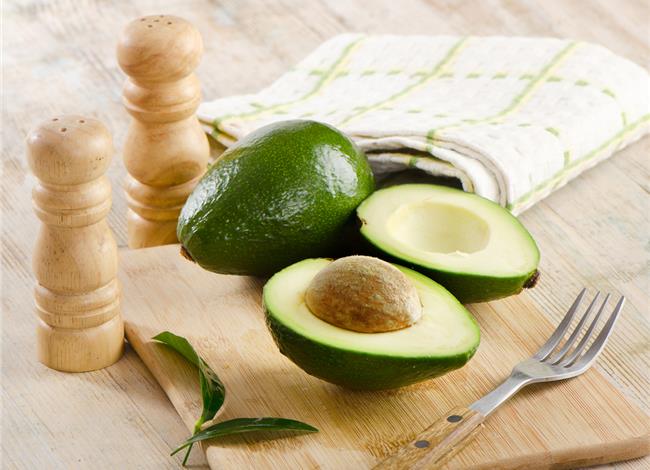
What may be even more surprising than an avocado considered a fruit is that avocado is actually considered a berry according to the California Avocado Commission.
How are they a berry? They fit the botanical classification of being a berry. For example, they have a fleshy pulp and of course a seed.
While avocados are technically a fruit, the USDA My Plate classifies avocado as a fat serving.
Women 31 years and over need about 5 teaspoon equivalent of fats per day, and men 31 years and over need about 6 teaspoon equivalent of fat per day.
One half of an avocado is equal to 3 teaspoons of fat/oil.
SUMMARY
Avocado is technically considered a fruit, and it falls under the fat/oil category according to the USDA.
How to eat an avocado?
The good news is there are countless ways to incorporate avocados into your diet. Of course avocados can simply be enjoyed as is (or with a dash of lemon juice and pinch of sea salt) or incorporated into desserts, egg dishes, topping for tacos, sandwiches or in smoothies.
When you are making vegetable dishes, consider adding avocado to the dish to increase absorption of fat soluble antioxidants.
Avocado toast
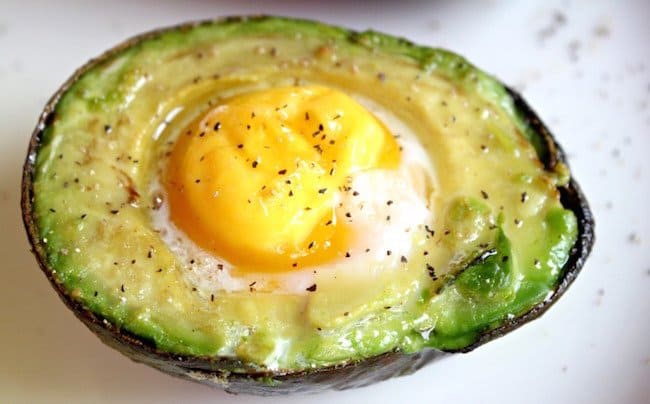
According to a 2016 Washington Post article (11), avocado toast may be one of the biggest food trends of the decade.
Google data suggests searches for avocado toast were rising the past few years. Avocado toast can now be found at many “trendy” restaurants, and the #avocadotoast is prominent in social media.
What may be so attractive about avocado toast is the customization. There are countless ways and options to vary avocado toast, and it can produce a satisfying, nutrient dense snack or meal.
Avocado toast can be as simple as smashing avocado on toast with sea salt, black pepper, olive oil, lemon oil or you can add slices of other vegetables, eggs, herbs, cheese, etc.
Guacamole
Guacamole is a more traditional way to enjoy avocados. Simply smashing avocados with optional salt, pepper, lemon juice, tomatoes, or peppers can provide a nourishing dip for chips, veggies and spread for sandwiches.
An easy way to swap in avocados to your diet is to use guacamole in place of mayo or other fatty spreads.
A note of caution with guacamole is the serving size. It can be easy to overdue with chips and guacamole.
Portioning out chips and veggies on your plate with guacamole can help limit your intake instead of eating straight from a container.
Avocado on tacos, eggs, salad and sandwiches
Cut up avocado into chunks to put as a topping for any egg dish, on tacos, salads and sandwiches for an easy way to add avocado to your current diet.
If you want to jazz up your usual sandwich, consider cutting out the meat and eating an avocado sandwich.
For example, food blog Hurry the Food Up (12) lists an avocado sandwich with just avocado, brie cheese, cranberries, tomato, arugula and balsamic vinegar.
Avocado in desserts
Avocados can be used in place of butter when baking. Use a one to one ratio of avocado to butter.
Reduce baking temperature by 25% and increase baking time when you are substituting avocado.
Avocado can pair especially well with chocolate. Avocado chocolate mousse, pudding, cookies and brownies can be a healthier alternative for a chocolaty dessert.
Avocado smoothie
Add avocado to a smoothie to increase creaminess, nutrient density and satisfaction.
For example, avocado can be added to a berry, banana spinach smoothie (13) or you can make a smoothie alone from avocado, milk, yogurt, ice cubes and honey (14).
SUMMARY
Avocado can be enjoyed by itself or added to a number of sweet and savory dishes.
How to ripen an avocado
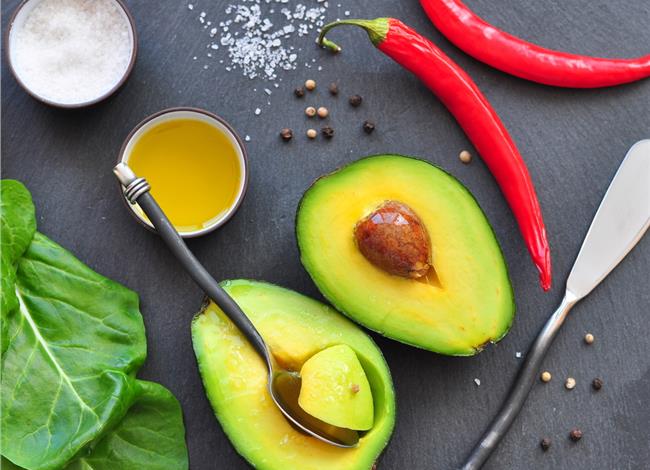
If you live far away from California or Florida in the US your avocado has traveled many miles to get to your grocery store.
Avocados can seem like they are rock hard and other times too soft and mushy. Avocados that are considered just right can be a tricky balance.
Avocados that give slightly when pushed are considered ripe. If they are too soft, they will be brown inside.
Keeping avocados out on the counter should produce ripe avocados in a few days depending on how hard they were when you bought them.
If you want to ripen them faster you can place avocados in a brown paper bag with bananas.
Brown paper bag is best
Some websites suggest you can put an avocado in a microwave or oven to quickly ripen them, but California Avocado Commission suggests these techniques may provide a soft flesh.
However, the avocados will still taste unripe and won’t produce the best quality.
Further reading: How to get an avocado to ripen quicker
SUMMARY
Avocados can ripen on the counter but will ripen quicker when put in a brown paper bag.
Conclusion: Avocados and health
Avocados provide many health benefits and should be part of a balanced diet. Avocados are a source of around 20 nutrients including potassium, fiber, B vitamins, antioxidants and heart healthy oils.
Avocados are one of the top fruit and vegetables to provide carotenoids lycopene and zeaxanthin. Because avocados are high in fat they can help absorb fat soluble antioxidants.
A serving of avocado provides about 80 calories, but eating a whole avocado can provide 200 to over 300 calories depending on how big the avocado is.
Despite being relatively high in calories, avocados have not been shown to increase risk for weight gain. On the contrary, eating avocados is associated with lower BMI and body weight.
Eating avocados is associated with increased intake of fruits and vegetables which may also contribute to health benefits.
Substituting avocado in place of other fat sources is recommended. Avocados can be used in place of butter, mayo, oils or other fats.
Avocados are versatile because of their mild flavor. They can easily be incorporated into both sweet and savory dishes. Avocados can be used in place of butter when baking.
A key to enjoying avocados at their peak is eating them when they are ripe. Avoid trying to ripen them quickly in the oven or microwave, as this will only make them soft not ripe.
Avocados can be ripened on the counter or faster in a brown paper bag.
